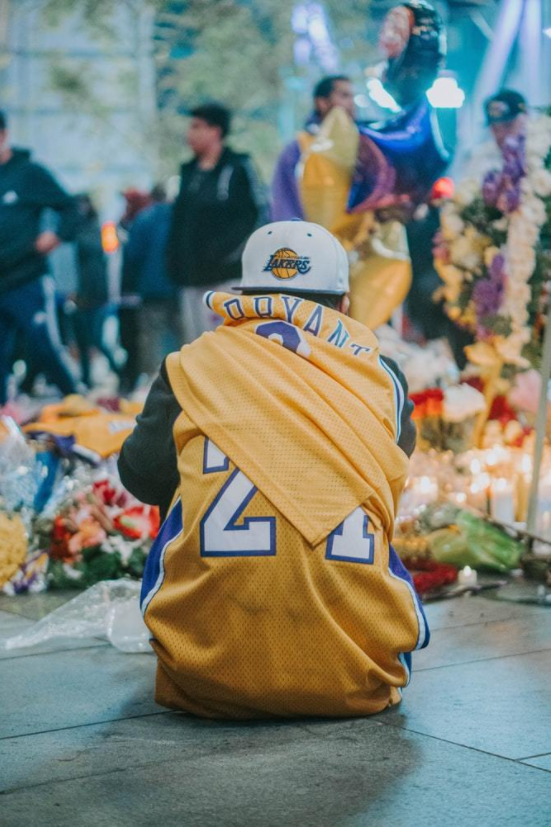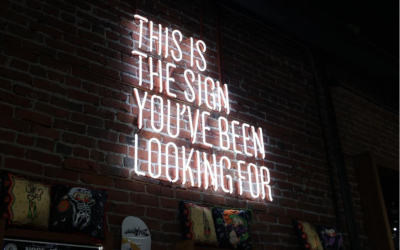Can You Grieve Someone You Don’t Know?

(3 min read)

Can you grieve someone you don’t know personally? Long story short, YES. Loss can be tangible or theoretical; the only thing we can control is how we react to it.
One of the most recent deaths in the media is Kobe Bryant, a lot of people felt some type of way when hearing this news. A flood of emotions was experienced by those who knew him, who were close to him and his family, while us “normal” people also experienced some of the same emotions. Why is that?
The media helps us to feel connected to those celebrities. We as humans begin to establish a connection, a bond regardless if we know them personally or not. We feel as if we DO know them because they open their lives to the public. We watch them grow, make families, and begin to idolize them. Some may even become a role model for us. Nevertheless, we know them. This is why we must be knowledgable and prepared to help ourselves and others during those dark times.
Grieving is a natural process. Feeling the emotion, expressing emotion, and dealing or coping with that emotion is where it may feel a little tricky. Regardless of the dynamics around the loss, it still hurts.
Do you find yourself feeling “stuck” and overthinking the loss of that person? It could be because you are stuck in a particular stage of grief after a terminal illness, the loss of a close relationship, or to the death of a valued human, or animal. Regardless of the reasoning behind your mourning, the stress of dealing with this array of emotions can cause extra unwanted anxiety. Which can feel as if you may feel this way “forever” but that is not the case.
The media continuously giving us information and discussing the loss, does not help us to “forget about it” or suppress those emotions. Being constantly reminded of what happened, how it happened, or speculations flood our mind and makes it difficult to begin the grieving process. You are not alone in experiencing this type of grief, see for yourself.
To cope and deal with everything, you have to be aware of the stages of grief and prepare to go through each stage, on your own time. The key to understanding the stages is not to feel like you must go through every one of them, in a particular order. However, it’s more helpful to look at them as guides during this process — it helps you understand and put into context where you are – which fosters a sense of control.
The Stages of Grief:
There are FIVE stages of grief. Not all people will go through each stage the same, some will bounce from stage-to-stage, some might go in order, while some will be in a stage for an extended period of time. Whatever the case may be, the goal is to have a plan for coping or dealing with grief.

The key is to cope, not overcome~
-DENIAL The first reaction someone may have when hit with a difficult scenario may be to DENY it ever happening. This is not as negative as it appears. This is normal, it helps us to pace our feelings; only allowing our body to handle as much as we can.
-ANGER Some may get triggered and experience anger. Experiencing anger simply means we are not ready to deal with reality, so we express those intense feelings as anger. Blame, guilt, and lashing out is a component of this stage.
-Bargaining This is known as the “what if…” stage. We might make a deal with ourselves or a higher power to attempt to postpone the inevitable.
-Depression This is normal! Don’t let the name of this stage scare you. Intense sadness and a loss of sleep or appetite might occur during this stage. Reality has somewhat sunk in at this point, which causes those intense waves of emotions to occur.
-Acceptance Finally accepting reality and recognizing that it is permanent will bring more good days than bad. Grief is not “over” during this stage, grieving is an ongoing situation we must learn how to cope with.
So, next time you find yourself triggered due to the loss of a family member, friend, or even celebrity, reassure yourself with some of these tips:
- Journaling your thoughts and feelings, but go back and reflect!
- 4-6-7 breathing technique
- Go for a walk – get some fresh air
- Find a hobby
- Practice self-care
- Call a friend
- Seek counseling and make an appointment!
It’s okay to not be okay.
#Depression#kobe#mamba#gigi#grief#loss#coping#healing#death#stagesofgrief#movingon#anxiety#mentalhealth#DrNortonTherapy#ChooseYourChoices#coping #Grief #therapy #kobe #lakers #Depression #mamba #healing

